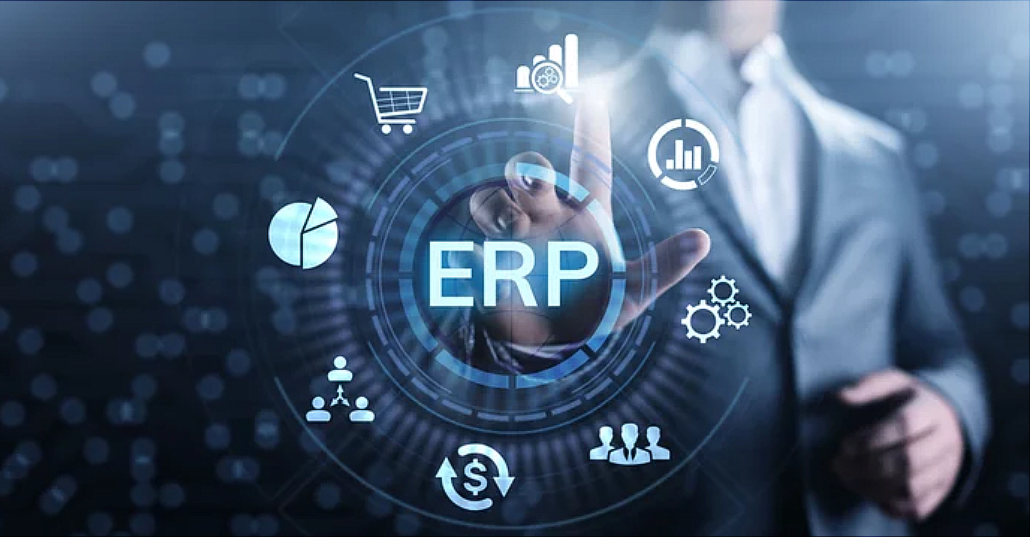What Are ERP Systems?
An ERP system (Enterprise Resource Planning) is an advanced IT tool designed for the comprehensive management of various areas of a company’s operations. In today’s world, where businesses must efficiently operate across multiple areas simultaneously—from finance and production, through inventory, to sales and human resources—an ERP system enables the integration of these processes into one cohesive environment.
What Exactly Is an ERP System?
ERP is an integrated IT system that collects, stores, and processes data from all departments of a company in one central database. This ensures that all information is up-to-date, consistent, and accessible to authorized users in real time. Instead of using multiple independent programs, spreadsheets, or paper documents, a company uses one comprehensive system that allows for full control and coordination of activities.
How Does an ERP System Work?
An ERP system functions like a digital “brain” of the company. It gathers data from various departments—such as accounting, inventory, production, sales, HR, or procurement—and integrates it in one place. Every business event, such as issuing an invoice, receiving an order, or updating inventory status, is immediately reflected in the system and visible to other departments.
For example:
- Accounting can monitor cash flow and control expenses in real time.
- Warehouse staff know which products are available and when new orders need to be placed.
- The sales department has insight into order status and delivery timelines.
- Company management sees a full picture of the situation and can make informed decisions based on reliable, real-time data.
History of ERP
1. The Beginnings – 1960s: MRP
The first step in the evolution of ERP was the emergence of MRP (Material Requirements Planning) systems. Their goal was to improve the production process by better planning the supply of materials and components. These systems helped companies determine how much raw material to order and when to fulfill customer orders on schedule.
- 1964 – The first MRP system was implemented at Black and Decker in cooperation with IBM.
- By 1980 – Around 8,000 companies worldwide were using MRP systems.
MRP systems primarily focused on:
- Inventory analysis
- Supply planning
- Creating bills of materials (BOM)
- Production scheduling
2. 1980s: MRP II – Manufacturing Resource Planning
In the 1980s, MRP systems were significantly expanded and evolved into MRP II (Manufacturing Resource Planning). MRP II systems included not only material requirements but also:
- Human resources
- Machines and their efficiency
- Operating costs
- Capacity planning
MRP II marked the beginning of truly integrated production management. Their implementation meant better control over the entire production process and enabled realistic planning and scheduling. It was during this time that the need for integrating various company functions into a single system became apparent.
3. 1990s: The Birth of ERP
In the early 1990s, a major breakthrough occurred—the first ERP-class systems were developed, which extended beyond production and began integrating all key business departments. ERP systems combined the functions of MRP II with new modules, including:
- Accounting and finance
- Human resources and payroll (HR)
- Customer Relationship Management (CRM)
- Sales and marketing
- Supply Chain Management (SCM)
Thanks to the development of database technologies and client-server architecture, ERP systems became more flexible, scalable, and accessible to medium and large enterprises. Their introduction enabled data centralization and automation of many business processes.
4. Post-2000: ERP in the Internet Era
With the rise of the internet and web technologies, ERP systems became available online, enabling remote access to data and applications. This period brought new development directions:
- ERP II – Expanded ERP functionalities with tools for collaboration with external partners (suppliers, customers, contractors)
- Integration with e-commerce, online CRM, B2B and B2C platforms
- The ability to manage multiple company locations and units from one platform
5. Today: ERP in the Cloud, Mobility, AI and IoT
Modern ERP systems are much more advanced and available in the cloud computing model. This means they don’t require local installation, are cheaper to implement, and easier to scale. In addition, they are enhanced with the latest technologies:
Mobility – Systems available via mobile apps enable work from anywhere
Predictive analytics and Business Intelligence – Analytical tools integrated with ERP are gaining importance
Artificial Intelligence (AI) – Supports process automation, sales forecasting, data analysis
Internet of Things (IoT) – Allows integration of ERP with smart devices and machines
Key Functions of ERP Systems
1. Finance and Accounting
Bookkeeping
The ERP system automates financial transactions, ensuring compliance with current regulations. It enables the creation of balance sheets, profit and loss statements, general ledgers, and journals.
Budgeting and Forecasting
This module allows businesses to create revenue and cost forecasts and monitor budget implementation. It supports strategic financial decision-making.
Financial Reporting and Analysis
ERP generates real-time financial reports, increasing transparency and enabling faster analysis of the company’s financial health.
2. Human Resources Management (HR)
Recruitment and Onboarding
The HR module supports the recruitment process – from posting job offers to evaluating candidates. It also streamlines the onboarding process for new hires.
Payroll and Personnel Administration
The system automates payroll calculations, including deductions, taxes, leave management, and time tracking.
Employee Development and Performance Evaluation
ERP helps plan training programs, evaluate employee performance, and manage talent and career paths.
3. Supply Chain Management
Purchasing and Supplier Management
The system facilitates placing purchase orders, evaluating suppliers, negotiating terms, and managing contracts.
Logistics Planning
It optimizes transportation, warehousing, and deliveries, reducing costs and order fulfillment time.
Order and Delivery Tracking
ERP enables real-time tracking of orders and allows for quick response to supply chain disruptions.
4. Production
Production Planning and Scheduling
ERP allows the creation of production plans that consider demand, available resources, deadlines, and costs.
Work Order Execution
The system manages production orders, controls raw material usage, and monitors progress.
Performance and Quality Monitoring
It provides oversight of OEE (Overall Equipment Effectiveness), product quality, and compliance with standards.
5. Warehousing and Logistics
Inventory Tracking and Control
ERP enables real-time monitoring of inventory levels and alerts about shortages or surpluses.
Warehouse Space Optimization
By analyzing product turnover, the system suggests efficient storage arrangements within the warehouse.
Product Location and Tracking
Using barcodes or RFID, ERP enables fast product identification and tracking.
6. Sales and Project Management
Order Management and Invoicing
The system automates order processing, invoice generation, and payment tracking.
CRM – Customer Relationship Management
The CRM module supports sales, marketing, and customer service – collecting data, analyzing customer behavior, and building strong relationships.
Project Planning and Control
ERP allows for task planning, resource allocation, progress tracking, and project budget control.
Benefits of Implementing an ERP System
1. Process Integration
ERP connects all departments – from accounting, sales, and warehousing to production, HR, and logistics – within one unified platform. Data entered in one department is immediately available to others, eliminating duplicate entries and reducing errors. This integration fosters better cross-department collaboration, improves operational transparency, and accelerates information flow.
2. Increased Efficiency
ERP automates many repetitive tasks – such as invoicing, order processing, payroll, or inventory updates – significantly reducing manual work and human errors. Employees can focus on strategic initiatives, data analysis, and business development instead of routine tasks. Task completion times are shortened, and overall organizational performance improves.
3. Better Data Management
All data is stored in a central database, eliminating fragmented information across different systems and files. Employees gain quick access to up-to-date and historical data, enabling analysis and comparison. Data is well-organized, consistent, and secure, with access rights easily managed to protect sensitive information.
4. Easier Decision-Making
Modern ERP systems offer advanced reporting and analytics tools. Managers can access real-time data to make fast, informed decisions. The system supports financial reports, sales analysis, production forecasts, and cost estimates – all without involving the IT team. Decision-making becomes more objective and data-driven.
5. Growth Support
ERP is modular, allowing businesses to implement only the necessary functions and expand over time as needed. The software easily adapts to an increasing number of users, new branches, or growing operational scale. ERP supports market expansion with features like multilingual interfaces, multi-currency support, and compliance with international regulations.
6. Improved Customer Service
With ERP integration across sales and customer service, employees have instant access to a customer’s full history – past orders, complaints, payments, and inquiries. This enables faster and more personalized service. Automated notifications (e.g., order status) improve communication. The system also supports on-time deliveries and better demand forecasting, enhancing customer satisfaction.
7. Warehouse Optimization
Real-time inventory tracking:
Any change in stock levels is instantly updated in the system, providing full control over inventory.
Minimizing overstock and stockouts:
The system helps maintain optimal inventory levels, preventing costly overstocking or production delays due to shortages.
Location management:
Assigning products to specific warehouse locations facilitates order picking and inventory audits.
Automatic reordering:
ERP can automatically generate purchase orders based on minimum stock levels and demand forecasts.
Integration with WMS and mobile devices:
Enhances logistics operations, speeds up order picking, and reduces human error.
Challenges of ERP Implementation
1. Choosing the Right ERP Software
Problem Description:
Companies often lack sufficient technological expertise to properly evaluate ERP systems available on the market. This can lead to selecting a solution that does not match the company’s scale, structure, or specific needs.
Solution:
- Conduct benchmarking with companies of a similar profile.
- Consult with independent ERP experts.
- Organize workshops to assess business needs before choosing a system.
2. Incomplete Understanding of Internal Business Processes
Problem Description:
A lack of in-depth understanding of internal processes may result in overlooking key functions during ERP configuration.
Solution:
- Map out business processes before starting implementation.
- Involve all departments in the analysis process.
- Hold workshops with developers and key department personnel.
3. Limited ERP Knowledge Among Management
Problem Description:
Decision-makers may not fully understand the difference between ERP and simpler tools. This can lead to selecting an overly complex or unnecessarily expensive solution.
Solution:
- Provide preliminary training and informational sessions for management.
- Collaborate with an ERP consultant to assess the justification for implementation.
- Perform a technology needs audit before making a decision.
4. Low Organizational Engagement
Problem Description:
ERP implementation cannot rely solely on key users — support and understanding from all employees is essential.
Solution:
- Engage end users early in testing and implementation.
- Offer tailored training for different departments (individual learning paths).
- Communicate clearly about the goals and benefits of ERP through internal messaging.
How to Choose the Right ERP System
1. Define Your Needs
Identify which processes should be covered by the system and what business goals the company aims to achieve.
2. Analyze Functional Capabilities
Check whether the ERP offers modules relevant to your industry — e.g., retail, manufacturing, logistics, services.
3. Scalability and Flexibility
A good ERP system should grow with your company and provide access from various devices and locations.
4. Technical Support
The vendor should provide regular updates, technical assistance, and user training.
5. Comprehensive Features
Top ERP systems offer a wide range of modules, such as WMS, DMS, BI, HR, Mobile, B2B, and more.
6. Choose a Trusted Vendor
It’s beneficial if the vendor understands your industry and can present a personalized system demo.
Popular ERP Systems on the Market
Deltek Maconomy – Advanced ERP for Professional Services
Deltek Maconomy is an advanced ERP system designed specifically for professional services firms, such as:
- Advertising and marketing agencies
- Consulting firms
- Law firms
- Engineering and architectural offices
- IT companies and software houses
- R&D companies
Key Features of Maconomy:
✅ End-to-End Project Management
Enables comprehensive project management – from quoting and resource planning to execution, budget control, reporting, and invoicing. Each stage of the project lifecycle can be tracked for full transparency and control.
✅ Integrated Accounting and Finance
Provides a full suite of financial tools: accounting, invoicing, cost management, reporting, and budget control. Complies with international financial standards, ideal for global firms.
✅ Time and Performance Management
Timesheet and time tracking functionalities allow for accurate billing and profitability analysis.
✅ Resource and Competency Management
Assigns employees to projects based on their availability and skill sets, enhancing resource allocation efficiency.
✅ Multi-Company and Multi-Currency Support
Handles multiple companies within a corporate group, perfect for firms operating across countries.
✅ Advanced BI Reporting and Analytics
Dashboards, reports, and analytics tools monitor KPIs, project profitability, resource utilization, and cash flow.
✅ Cloud or On-Premise Availability
Flexible deployment options, either cloud-based (SaaS) or on-premise.
Why Choose Maconomy?
- Tailored for professional services — focuses on projects, services, and people.
- Reduces administrative burden and increases project profitability.
- Enhances transparency across the company.
- Supports growing companies without requiring a system change.
- Backed by Deltek, a global brand serving thousands of service firms.
Epicor iScala – Reliable ERP for Medium and Large Manufacturing Firms
Epicor iScala is a complete, modular, and integrated ERP system designed for mid-sized enterprises that require a stable and scalable platform to support both local and international operations. It’s particularly recommended for:
- Manufacturing, trading, and service companies
- Firms operating in multiple countries and languages
- Businesses aiming for international expansion
Key Features of iScala:
✅ Modular Architecture and Integration
- Fully integrated modules tailored to company needs. Open architecture supports integration with external systems (CRM, BI, EDI, industry-specific apps) via REST, SOAP, API.
✅ International Business Support
- 36 language versions, multiple currencies, compliance with IFRS and GAAP. Unified management across global branches.
✅ Selected Functional Modules:
- Financial Management – Accounting, asset management, cost control, consolidation, forecasting, real-time reporting.
- Supply Chain Management (SCM) – Procurement, logistics, supplier relationships, inventory planning.
- Production Management (MRP/MES) – Scheduling, material management, quality control, lean manufacturing, traceability.
- Sales and Distribution – Orders, pricing, discounts, invoicing, CRM.
- Project & Service Management – Ideal for project-based firms, integrates with time tracking and cost control.
- HR and Payroll (optional) – Employee management, training, evaluations, salaries.
Benefits for Mid-Sized Firms:
- Scalable from a single branch to multinational structures
- Secure with access control and user activity tracking
- Flexible configuration for different industries
- Global support and updates from Epicor
- Compliance with local and international regulations
Who Should Use Epicor iScala?
- Medium-sized manufacturers needing MRP and quality control
- Distributors and retailers selling across multiple countries
- Project-based service providers needing cost tracking
- Multisite enterprises with geographically dispersed operations
Epicor Kinetic ERP – Modern, Modular, and Flexible
Epicor Kinetic ERP is a comprehensive ERP system for manufacturing, distribution, and service companies seeking a flexible and scalable solution. It integrates financials, supply chain, production, projects, and customer management with a modern user interface and multi-device accessibility.
Key Features:
Financial Management
Accounting, cost control, budgeting, financial reporting.
Supply Chain Management
Inventory, procurement, supplier management, logistics, MRP, advanced planning & scheduling (APS).
Production Management
Supports MTO, MTS, ETO, CTO production models; includes order management, quality control, MES integration.
Business Intelligence and Analytics
Dashboards and reports to track KPIs and enable data-driven decisions.
Global Management
Multi-language, multi-currency, compliance with local tax and accounting laws, and multi-entity management.
Cloud and Mobile Access
Available as SaaS or on-premise; accessible via browser or mobile app.
Who Should Use Epicor Kinetic ERP?
- Manufacturers, distributors, and service providers
- Businesses needing advanced financial, supply chain, and production tools
- Companies looking to integrate business processes into one platform
- Firms planning international expansion
RamBase Cloud ERP – Agile Cloud ERP for Production and Distribution
RamBase Cloud ERP is a robust ERP system for production and distribution companies that need a modern, scalable, cloud-based solution. It combines advanced financial, supply chain, production, project, and customer management features with an intuitive interface.
Key Features:
Financial Management
Accounting, cost control, budgeting, financial reporting.
Supply Chain Management
Inventory, purchasing, supplier relationships, logistics, MRP, APS.
Production Management
Supports MTO, MTS, ETO, CTO models; includes order tracking, quality control, MES integration.
Business Intelligence
Dashboards and reports to monitor KPIs and guide decision-making.
Global Management
Supports multiple languages, currencies, and tax compliance. Multi-entity management capabilities.
Cloud and Mobile Access
SaaS and on-premise options; access via browser and mobile app for real-time data availability.
Who Should Use RamBase Cloud ERP?
- Manufacturers and distributors
- Companies needing flexibility and scalability
- Firms looking for integrated financial, supply chain, and production tools
- Businesses expanding into international markets
The Future of ERP Systems
- AI and IoT Integration
Artificial intelligence and the Internet of Things allow predictive maintenance, supply chain optimization, and intelligent recommendations. - User Experience and Personalization
Increased focus on intuitive interfaces and customizable dashboards. - Mobility
Mobile apps allow users to manage processes from anywhere — even via smartphone.
Frequently Asked Questions
What are the costs of ERP implementation?
Costs depend on the organization’s size, number of users, and functional scope.
How long does implementation take?
From a few weeks to several months, depending on project complexity.
Is ERP suitable for small businesses?
Yes – many solutions are scalable and tailored for SMEs.
How is ERP different from other systems?
ERP integrates all company processes into a single platform, unlike separate applications.
What support is available after implementation?
Typically includes updates, technical support, optimization, and user training.




